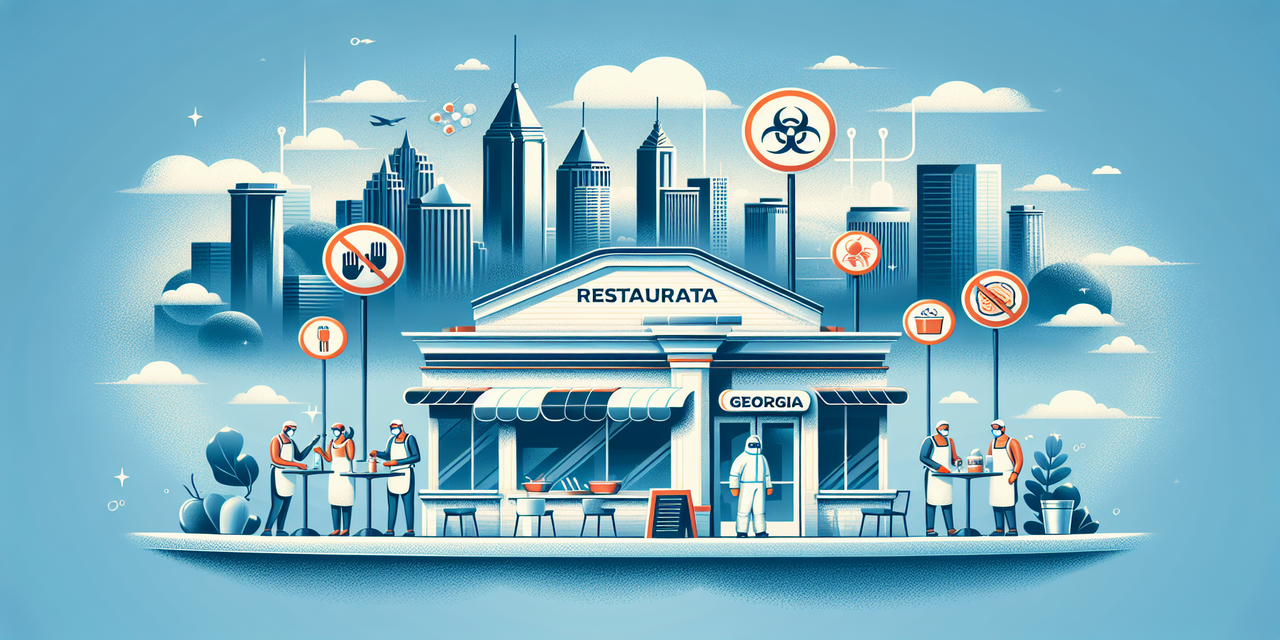Georgia OSHA Compliance Checklist for Restaurant Employers: Key Takeaways
- Maintaining clear walkways, proper fire safety measures, and functioning emergency exits is essential for employee safety.
- Regular inspection and maintenance of electrical and kitchen equipment reduce the risk of injuries and hazards in restaurants.
- Providing personal protective equipment (PPE) and conducting regular safety training ensures compliance with OSHA and protects staff.
Georgia restaurant employers must follow OSHA standards to create a safe environment and avoid penalties. This checklist serves as a practical guide to maintaining compliance.
By addressing key safety areas, employers can reduce risks and foster a culture of health and safety within their establishments.
Learn more about restaurant staff hiring strategies to build a compliant and efficient team.
1. General Safety Requirements in Georgia Restaurants
Ensuring a clean and hazard-free workplace begins with clear, unobstructed walkways and aisles. This reduces the risk of slips, trips, and falls—the most common workplace accidents in restaurants.
It’s important to promptly clean spills and place wet floor signs to alert both employees and customers to potential slip hazards.
Emergency exits must always be accessible, well-lit, and clearly marked. Any obstruction can delay evacuation during emergencies and jeopardize safety.
Restaurant owners can benefit from our guide to hiring a restaurant manager to ensure a safety-conscious leadership team.
2. Fire Safety Compliance for Restaurant Employers in Georgia
Fire hazards in a restaurant are significant due to the presence of flammable materials, hot surfaces, and cooking equipment. Proper fire safety practices are critical.
Fire Extinguishers and Fire Suppression Systems
Install fire extinguishers in accessible locations, ideally where staff can reach them quickly in case of fire. Conduct monthly inspections and document the status to comply with OSHA requirements.
Kitchens should be equipped with automatic fire suppression systems. These systems must be regularly maintained to ensure functionality in emergencies.
Flammable Materials Storage
Store flammable chemicals and materials away from heat sources and open flames to minimize the risk of accidental fires.
3. Electrical Safety Considerations for Georgia Restaurants
Routine inspection and maintenance of electrical outlets, cords, and appliances are necessary to avoid electrical shocks, fires, or equipment failures.
Only use extension cords for temporary purposes and avoid daisy-chaining them. Improper use can cause overheating and electrical hazards.
Facilities managers play a key role in maintaining electrical safety. Learn more about the facilities manager job description to understand their responsibilities.
4. Kitchen Equipment and Hot Surface Safety Measures in Georgia
Regular cleaning and maintenance of stoves, ovens, fryers, and other kitchen equipment keep them safe and efficient.
Install safety guards or shields on potentially dangerous machines like slicers and mixers to protect employees from injury.
Provide oven mitts or heat-resistant gloves to employees when handling hot items to prevent burns.
For hiring kitchen staff who excel in safety and efficiency, consider tips on how to hire reliable kitchen staff.
5. Chemical Safety Protocols for Georgia Restaurant Employers
All cleaning chemicals must be clearly labeled and stored in their original containers separate from food preparation areas to prevent contamination.
Maintain Safety Data Sheets (SDS) for each chemical and ensure all staff receive training on safe handling and emergency procedures related to these substances.
6. Personal Protective Equipment (PPE) Requirements in Georgia Restaurants
Employers must provide necessary PPE such as gloves, aprons, and non-slip shoes at no cost to employees.
Employees should receive training on the correct use and maintenance of PPE to keep it hygienic and functional.
Regular replacement of worn or damaged PPE ensures ongoing protection and compliance with OSHA standards.
7. Food Handling and Sanitation Standards for Georgia Restaurants
Maintain fully stocked and operational handwashing stations to promote good hygiene practices among staff.
Food-contact surfaces must be cleaned and sanitized between uses to inhibit contamination and foodborne illness.
Regularly monitor and log food temperatures in hot and cold storage to comply with food safety regulations and OSHA guidelines.
Explore career paths such as line cook job description to understand roles involved in food preparation compliance.
8. Workplace Ergonomics and Injury Prevention in Georgia Restaurants
Anti-fatigue mats should be used in areas where employees stand for extended periods to reduce strain and fatigue.
Training staff on proper lifting techniques and encouraging team lifts for heavy items helps prevent musculoskeletal injuries.
Consider implementing a restaurant manager training checklist that includes injury prevention best practices.
9. Incident Response and First Aid Preparedness in Georgia Restaurants
Keep a fully stocked first aid kit accessible and inspect it monthly to ensure supplies are current.
Document all workplace incidents and near misses systematically, then review them to implement corrective measures aimed at preventing repeats.
Make sure all employees understand the procedures for reporting hazards, injuries, or unsafe conditions immediately.
10. Additional Compliance Measures for Georgia Restaurant Employers
Post all required labor law notices, including the OSHA workplace safety poster, in a clearly visible location to inform employees of their rights and safety protocols.
Provide regular health and safety training covering emergency response and hazard recognition for all staff members.
Conduct periodic self-inspections following OSHA-aligned checklists to proactively identify and correct potential workplace hazards.
Georgia OSHA Compliance Checklist for Restaurants: Conclusion
Following this comprehensive OSHA compliance checklist helps Georgia restaurant employers maintain a safe work environment, minimize risks, and adhere to all applicable federal and state regulations.
Consistent attention to safety protocols not only protects employees and customers but also reduces liability and fosters a culture of workplace safety.
Employers are encouraged to be proactive, integrate these safety measures into daily operations, and regularly consult official resources for updated guidance.
Additional insights on restaurant owner responsibilities can help reinforce compliance and workplace safety culture.


.png)

.png)
.jpg)